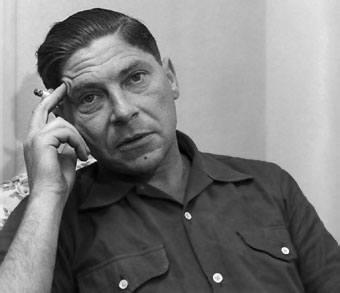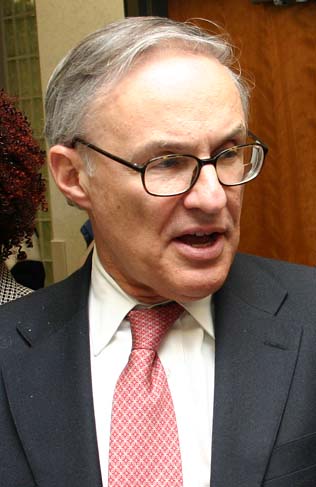![]()
Críticos de Darwin: K
K
°º¤ø,¸¸,ø¤º°`°º¤ø,¸¸,ø¤º°`°º¤ø,¸¸,ø¤º°`°º¤°º¤ø,¸¸,ø¤º°`°º¤ø,¸¸,ø¤º°`°º¤ø,¸¸,ø¤º°`°º¤
Kass, Leon (1939- )
Though there is today a growing debate about the mechanisms of evolution, the reigning orthodoxy still credits accidental mutation and natural selection as the major means of evolutionary change. Yet very few people have noticed that this nonteleological explanation of change not only assumes but even depends upon the immanent teleological character of all living organisms. The desire or tendency of living things to stay alive and their endeavor to reproduce, both of which are among the minimal conditions of Darwinian theory, are taken for granted and unexplained. It is only a part of an explanation to say that those beings with no tendency to maintain and reproduce themselves have died out. Why are the other ones, the self-maintaining and reproducing beings, here at all? They are not teleological because they have survived; on the contrary, they have survived (in part) because they are teleological. Can evolutionary biology tell us why a nonteleological nature would generate and sustain teleological beings? Or why, over time, it would give rise to higher organisms, with a fuller range of powers of awareness, desire and action? Do we really understand what we are claiming when we accept the view that an mindless universe gave rise to a mind?
Aunque hoy en día existe un creciente debate sobre los mecanismos de la evolución, la ortodoxia reinante todavía da crédito a la mutación accidental y a la selección natural como el principal medio de cambio evolutivo. Sin embargo, muy pocas personas han notado que esta explicación teleológica del cambio no sólo asume pero aún depende del carácter teleológico inmanente de todos los seres vivos. El deseo o la tendencia de los seres vivos para mantenerse con vida y su esfuerzo para reproducirse, los cuales se encuentran entre las condiciones mínimas de la teoría darwiniana, se da por sentado y sin explicación. Es sólo una parte de una explicación para decir que han desaparecido los seres que no tenían tendencia a mantenerse y reproducirse ellos mismos . Pero entonces,……¿Por qué existen los otros, es decir los seres que se auto-mantienen y se reproducen? No son teleológicos porque han sobrevivido, al contrario, han sobrevivido (en parte) porque son teleológicos. ¿Puede la biología evolutiva decir por qué una naturaleza no-teleológico iba a generar y a mantener a seres teleológicos? ¿O por qué, con el tiempo, daría lugar a los organismos superiores, con una mayor gama de poderes de conciencia, deseo y acción? ¿Entendemos realmente lo que estamos diciendo cuando aceptamos la idea de que un universo sin sentido dio lugar a una mente?
°º¤ø,¸¸,ø¤º°`°º¤ø,¸¸,ø¤º°`°º¤ø,¸¸,ø¤º°`°º¤°º¤ø,¸¸,ø¤º°`°º¤ø,¸¸,ø¤º°`°º¤ø,¸¸,ø¤º°`°º¤
[youtube]http://youtu.be/jrXf8KCJLMg[/youtube]
Kenyon, Dean (1939- )
«And let us dispose of a common misconception. The complete transmutation of even one animal species into a different species has never been directly observed either in the laboratory or in the field.» Dean H. Kenyon (Professor of Biology, San Francisco State University), affidavit presented to the U.S. Supreme Court, No. 85-1513, Brief of Appellants, prepared under the direction of William J. Guste, Jr., Attorney General of the State of Louisiana, October 1985, p. A-16.
°º¤ø,¸¸,ø¤º°`°º¤ø,¸¸,ø¤º°`°º¤ø,¸¸,ø¤º°`°º¤°º¤ø,¸¸,ø¤º°`°º¤ø,¸¸,ø¤º°`°º¤ø,¸¸,ø¤º°`°º¤

Koestler, Arthur (1905-1983)
In the meantime, the educated public continues to believe that Darwin has provided all the relevant answers by the magic formula of random mutations plus natural selection—quite unaware of the fact that random mutations turned out to be irrelevant and natural selection a tautology.
°º¤ø,¸¸,ø¤º°`°º¤ø,¸¸,ø¤º°`°º¤ø,¸¸,ø¤º°`°º¤°º¤ø,¸¸,ø¤º°`°º¤ø,¸¸,ø¤º°`°º¤ø,¸¸,ø¤º°`°º¤

